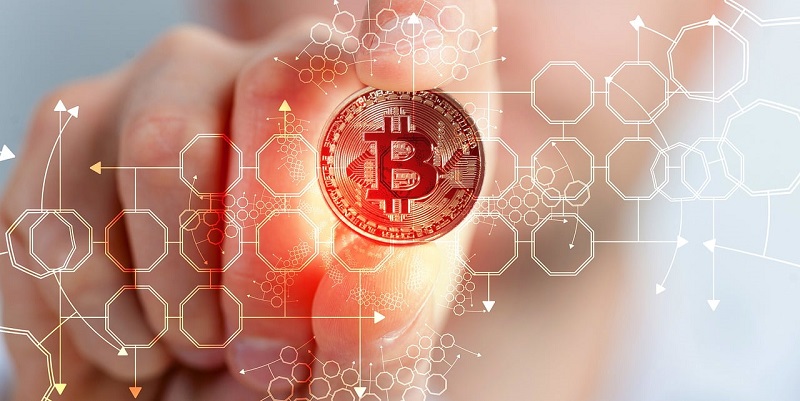In recent years, the growth of artificial intelligence (AI) and related technologies has had a profound impact on society. It has revolutionized industries and enhanced our daily lives, permeating numerous aspects of our world. Simultaneously, blockchain technology has emerged as a powerful tool for establishing consensus on the authenticity of information. In this article, we explore how the convergence of crypto and AI is shaping the future of technology. We delve into the potential of blockchain in ensuring trustworthy data, tackling data privacy issues, democratizing AI development, and mitigating wealth inequality. Furthermore, we examine investor interest and investment trends in crypto applications related to AI.
Blockchain Technology and the Authenticity of Information
When it comes to blockchain, establishing consensus on the authenticity of information lies at its core. Blockchain’s decentralized and immutable nature makes it an ideal solution for ensuring the trustworthiness of data. By harnessing cryptographic algorithms, blockchain verifies and validates transactions or data, engendering transparency and security. This technology has the potential to transform various sectors such as finance, supply chain, healthcare, and more by eliminating the need for intermediaries and promoting verifiability.
The Potential of Blockchain in Protecting Personal Data
Data privacy has become a growing concern in the digital age, with personal information often being exploited for various purposes without one’s knowledge or consent. Projects like the Brave browser demonstrate how blockchain could combat this trend by enabling individuals to maintain sovereign ownership over their personal data. Through the use of blockchain, users can selectively share their data with desired entities, ensuring privacy while maintaining control over their digital identity. By putting users in charge, blockchain empowers individuals to reclaim ownership of their personal information, providing a potential solution in the era of data breaches and privacy concerns.
Democratizing AI development through cryptocurrencies
The development of AI often requires vast amounts of data and computational power. This centralized approach to AI development raises concerns about data ownership and unequal access to resources. However, cryptocurrencies can democratize AI development by offering decentralized data and computation marketplaces. These marketplaces allow individuals to trade data and access computational resources in a peer-to-peer manner, enabling a wider range of participants to contribute to AI research and development. By leveraging cryptocurrencies, the barriers to entry in AI can be lowered, facilitating innovation and fostering collaboration among diverse stakeholders.
Investor interest in the convergence of cryptocurrency and artificial intelligence
The convergence of crypto and AI is still in its infancy, but it has already garnered significant investor interest. Venture capitalists have been recognizing the potential for these technologies to disrupt traditional industries and reshape the future. In 2023 alone, venture capitalists invested a staggering $422 million specifically in crypto applications related to AI, privacy, and identity. This influx of capital reflects the increasing recognition of the transformative power of these technologies and the immense potential for returns on investment.
Investment Trends in Crypto Applications Related to AI
As the convergence of crypto and AI gains momentum, investment trends in AI startups are skyrocketing. Since ChatGPT reached a landmark of 100 million sign-ups in January 2023, $5.4 billion has been invested in AI startups worldwide. This surge in investment underscores the confidence in the future growth and potential of AI technologies. From enhanced natural language processing to advanced computer vision systems, AI is poised to reshape industries across the globe, and investors are keen to support its development.
Use of blockchain for authenticating human users
Worldcoin, a prominent blockchain-based project, has introduced a revolutionary “proof of humanity” system. In this system, retinal scans are used to authenticate human users. By leveraging blockchain’s decentralized architecture, Worldcoin ensures the authenticity of human users without compromising privacy or resorting to centralized identity verification systems. This innovative use case demonstrates the potential of blockchain in addressing identity-related challenges and building trust in digital interactions.
Long-Term Vision: Combating Bots and AI-Related Wealth Inequality
While AI presents incredible opportunities, it also brings certain challenges. One such challenge is the increasing presence of bots online, affecting various aspects of society, including social media, e-commerce, and online forums. Companies like Worldcoin envision a future where blockchain and AI can mitigate this problem by authenticating human users and curtailing the influence of automated bots. Additionally, these technologies have the potential to address AI-related wealth inequality by ensuring a fairer distribution of resources and opportunities.
Future challenges and synergies between cryptocurrency and artificial intelligence (AI)
As AI systems continue to evolve, new challenges will emerge, requiring innovative solutions. Alongside these challenges, the intersection of crypto and AI will continue to grow, fostering synergy between the two domains. Researchers, technologists, and policymakers are beginning to explore the potential of combining blockchain and AI to address common challenges like data privacy, security, and trust. This convergence opens up exciting possibilities for cross-pollination and the development of advanced solutions that utilize the strengths of both technologies.
The convergence of crypto and AI is revolutionizing the world of technology. From ensuring the authenticity of information to protecting personal data, decentralizing AI development, and tackling wealth inequality, these technologies are set to shape our future. Investor interest and significant investments in AI startups further signify the promising opportunities ahead. As AI systems develop and mature, the intersection and synergies between crypto and AI will continue to increase, setting the stage for a technological revolution that elevates society as a whole. Embracing this convergence opens doors to a world powered by trust, fairness, and innovation.

